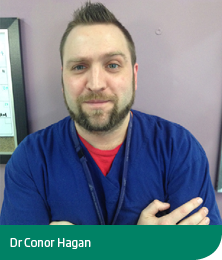What I Love About Paediatrics
15 Oct 2015

It was often said during my student years that I would make a good paediatrician (this is by far the nicest way I know of being told I’m behaving like a child). I signed up for twelve months to start with, ensuring I tested it out thoroughly before making any career defining decisions. Halfway through that year, I found that I was indeed a square peg in a square hole! And while I’m not so much climbing the career ladder as meandering in a vaguely ascendant manner, I’ve no regrets about what I do. Here are some reasons why:
It’s very rarely their fault
They didn’t get type II diabetes because they’ve been mainlining sugar through their eyeballs. They didn’t get their third myocardial infarct because they can’t say no to a burger. And their asthma is not exacerbated by their smoking habit. This is a huge deal for me. A patient who bursts into tears when you tell them they need a needle is acceptable when they’re not twenty five. Sure, occasionally a kid comes in with injuries following a stunt that any adult would preface by saying “hold my beer”, but those cases are more amusing than annoying – which brings me to my next point.
They make you laugh
Kids are unintentionally hilarious – from the girl who, after her first puff of salbutamol, gravely informed me, “I’ve had enough medicine, thank you” – to the young boy who paused in the middle of oral dexamethasone administration to point out: “it smells of blackberries and tastes disgusting”. I’ve lost count of the number of times my professional demeanour gets thrown out the window and I burst out laughing. Not only is it acceptable, but parents will often be laughing right along with you.
They get better quickly
Average length of inpatient stay is in the order of two to three days. In that timeframe, they can go from struggling with each breath to giggling while they hit you with a teddy. That is satisfying. There is a tangible sense of achievement in making someone better so quickly, although in all honesty it’s the child’s body doing most of the hard work while we take the credit. Part of this is due to the fact that they’re incredibly resilient. Kids will bounce back from things that will floor an adult, without any of the bragging. Some of them aren’t even that sick to begin with and all that’s required is some parental reassurance. Allaying a parent’s fears with simple knowledge is surprisingly satisfying.
People are nicer
Because they have to be. Once you’ve upset a child, it’s hard to get the examination findings you need. So we fall into the habit of being friendly and approachable to make our patient interactions more successful, and this spills over into all our interactions. The lack of cross examination for every single referral you make lends itself to a laidback work environment.
You can still specialise
It’s a specialty that allows you access to all the other specialties – Cardiology, Nephrology, Rheumatology and even Palliative Care, all have their own paediatric version. You name it and it’s probably available. All you really miss out on is Geriatrics – but Neonatology is not so different, just with smaller sized nappies. When you sign up for Paediatrics you’re not limiting your career options, you’re just focusing them.
Ultimately I like Paediatrics so much because it’s fun for me. It’s very rare that I feel unhappy on the drive into work simply because I’m going to work, and rarer still that I find myself desperately needing a holiday to get away from it all.
Dr Conor Hagan (MDA National Member)


Doctors Let's Talk: Get Yourself A Fricking GP
Get yourself a fricking GP stat! is a conversation with Dr Lam, 2019 RACGP National General Practitioner of the Year, rural GP and GP Anesthetics trainee, that explores the importance of finding your own GP as a Junior Doctor.
25 Oct 2022
Systematic efforts to reduce harms due to prescribed opioids – webinar recording
Efforts are underway across the healthcare system to reduce harms caused by pharmaceutical opioids. This 43-min recording of a live webinar, delivered 11 March 2021, is an opportunity for prescribers to check, and potentially improve, their contribution to these endeavours. Hear from an expert panel about recent opioid reforms by the Therapeutic Goods Administration and changes to the Pharmaceutical Benefits Scheme.
14 May 2021
Diplomacy in a hierarchy: tips for approaching a difficult conversation
Have you found yourself wondering how to broach a tough topic of conversation? It can be challenging to effectively navigate a disagreement with a co-worker, especially if they're 'above' you; however, it's vital for positive team dynamics and safe patient care. In this recording of a live webinar you'll have the opportunity to learn from colleagues' experiences around difficult discussions and hear from a diverse panel moderated by Dr Kiely Kim (medico-legal adviser and general practitioner). Recorded live on 2 September 2020.
05 Oct 2020







